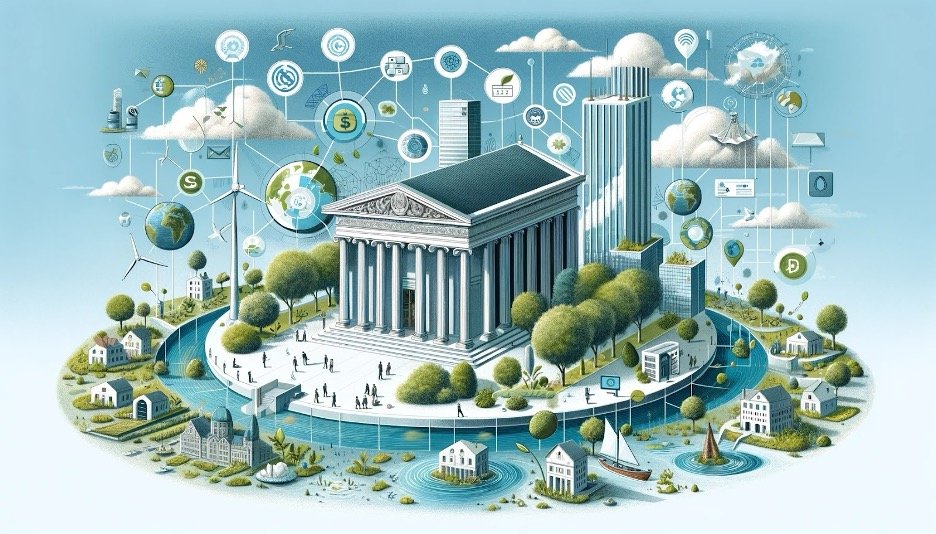Banking for Water Resilience
Tuesday, 10 September; 4-5:30 p.m. CEST
The intersection between the banking system and climate resilience has only recently emerged as a systemic regulatory and economic issue. While banks have traditionally served as a source of financial stability and economic security, they have occasionally triggered crises that can ripple throughout the larger economy. Their ability to safely hold funds and make loans are based on assumptions about risk, repayment, and liquidity that may be both violated and unquestioned by managers, investors, and regulators. Bank portfolios with traditional clients using water, such as agricultural businesses, or loans to households in flood prone areas or in areas with decreasing water resources, may be becoming financially more exposed. The so-called shadow banking system, which performs many of the same functions as formal banks and with roughly the same order of magnitude of economic power, may hold even more significant challenges because of more limited oversight or even visibility to decision makers.
This session will explore how climate change and the need for water resilience are creating new opportunities and roles for the banking sector to better incentivize risk management by lenders and borrowers. Climate change undermines longstanding assumptions about risk that can challenge liquidity, regulatory regimes, and the very roles that banking services play. Moreover, climate change increases the needs for banking services among the most climate vulnerable water services providers and users and sensitive groups who may have been excluded completely or in part from the formal economy, such as through short- and long-term credit instruments, the secure deposit and accessibility of assets, and trustworthy interactions with the larger financial system. Not least, banks are often a core component of macroeconomic policy management, which should include building water-centric economic resilience and derisking climate hazards overall and in particular for water. Indeed, during recent social, economic, and epidemiological crises, banks have served as efficient instruments for applying coherent economic policies.
Innovative approaches that reinforce the role of water in banking services, implicitly and explicitly, are essential to prepare economies to existing and emerging challenges. For instance, loans can incentivize water resilience outcomes or prioritize equity and justice for access to water-dependent services for vulnerable populations.
Key questions for this webinar include: How can we ensure that the banking system — at local, national, and global levels — can continue to help our economies build wealth, promote economic stability, and fuel critical investment despite ongoing climate impacts? Can we align economic and climate resilience by expanding access to the most vulnerable without damaging the larger financial system? Moreover, by aligning regulatory and decision making systems with the climate needs and opportunities of key sectors and investments, can we leverage banks to enable systemic water resilience through long-term investment in water resources, infrastructure, and governance?
Speakers Include:
Nathanial Matthews - CEO, PlanetaryX
Ignacio Atance - Director of Studies, Fundación Grupo Cajamar
Thomas Panella - Senior Advisor - Water, Natural Capital, & Climate
Lylah Davies - Policy Analyst, OECD
Josefina Maestu - Honorary Lecturer, University of Alcalá, Spain
John Matthews - Executive Director, AGWA
Alex Mauroner - Chief Operating Officer, AGWA
About the WR4ER Webinar Series
The WR4ER webinar series underscores resilience as a new economic principle often overlooked in traditional economic analyses. As suggested by Nobel laureate William Nordhaus and other scholars, climate-induced shocks can reverberate through economies, affecting productivity, resource availability, and overall economic stability. We highlight the inadequacies of conventional economic tools in addressing climate uncertainty and propose innovative frameworks that embrace risk, uncertainty, and social dimensions to inform strategic adaptation investments.
In many cases, water resources are emerging as both as a systemic hazard exacerbating climate vulnerabilities and as the currency we spend through economic systems to purchase resilience and maximize coherence and efficacy.
Audience
The series targets macroeconomists, economic planners, central bankers, finance and development ministries, insurance and reinsurance programs, commercial banks, credit rating agencies, city planners, corporations reliant on critical infrastructure, and infrastructure funders and designers. Through engaging discussions, case studies, and expert insights, the series endeavors to foster a deeper understanding of resilience as a fundamental economic imperative and equip stakeholders with practical strategies to navigate the complex challenges posed by climate change.
Co-convenors
Alliance for Global Water Adaptation (AGWA), Asian Development Bank (ADB), Australian Water Partnership, Deltares, French Ministry Ecology, Energy, and Territories, French Water Partnership, German Gesellschaft für Internationale Zusammenarbeit (GIZ), Global Commons Alliance (GCA), Global Resilience Partnership (GRP), Inter-American Development Bank (IDB), International Union for the Conservation of Nature (IUCN), Netherlands Ministry of Infrastructure and Water Management, Organization for Economic Cooperation and Development (OECD), UK Foreign, Commonwealth, and Development Office (FCDO), US State Department, US Treasury Department, Veolia, Water Policy Group, Wetlands International, World Bank

